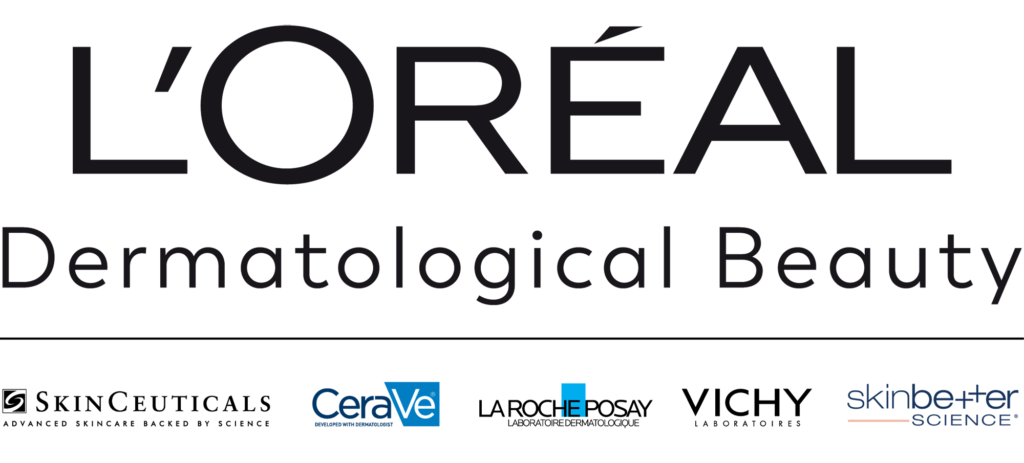Analysis of the population of the United States reveals that there will be a dramatic shift in the country’s demographics in the 21st century. The United States is rapidly becoming a country in which the majority of citizens have pigmented skin, which is also referred to as skin of color.
These changes in national and regional demographics, as well as international population shifts, underscore the need and importance of a thorough understanding of skin of color. The dermatology community may be faced with cutaneous diseases that occur more often in people with pigmented skin, present differently, inadequately understood, or are unique to this population. An increase in the body of dermatological literature concerning skin of color as well as the advancement of both basic science and clinical investigational research is necessary to meet the needs of the expanding skin of color population.
African American, Latino, Asian, Native Indian and Pacific Islander communities often have an inadequate understanding of the root causes of skin diseases that commonly affect them. Furthermore, they often face numerous challenges in their attempts to find information about these diseases. Many individuals of color adhere to misconceptions about the causes and potential cures for these diseases, and spend considerable financial resources on ineffectual non-prescription, folk, or home therapies.
We are dedicated to increasing diversity and inclusion in dermatology.
EQUITY: We ensure inclusivity and diversity to achieve health equities in patient care.
EXCELLENCE: We leverage our recognition and authority within dermatology, the house of medicine, and the public as experts in skin of color dermatology.
MENTORSHIP: We value mentorship as a leadership development tool to foster a diverse workforce at all levels, developing and empowering future leaders in the field.
RESEARCH and INNOVATION: We lead research and innovation through our diverse array of advanced research activities, leveraging collaborations with domestic and international corporations and organizations.
EDUCATION: We educate the public, partners, and colleagues in support of our mission and noble purpose.
The Institutional Research Fellowship Grant (IRF) program provides outstanding opportunities for underrepresented minority (URM) physicians to conduct research on skin of color dermatologic conditions and train for and assume leadership roles in clinical care, public policy, health services research and biomedical research.
Application Closed
Application Deadline: October 15, 2024; 11:59pm CTThe Institutional Research Fellowship (IRF) is a groundbreaking initiative that supports critical research on dermatologic diseases in skin of color and provides valuable opportunities for physicians of color, who are disproportionately underrepresented in dermatology and medicine. SOCS recognizes the dire need to address these healthcare disparities and is working to increase the number of physicians from diverse backgrounds who can provide culturally competent care to these often—underserved communities.
The Skin of Color Society Early Career Innovations Award will provide startup funding for young visionaries and innovators who have creative solutions addressing needs and opportunities within the skin of color dermatology ecosystem. Funding can be used to develop an idea or help advance or scale up an idea in progress.
Application Open!
Application Deadline: November 14, 2024; Noon CT
APPLY
“Shark Tank” meets Skin of Color Dermatology in this exciting new award program geared toward young visionaries with innovative ideas and creative solutions that need startup funding!
This exciting program was established in 2022, thanks to the vision and generosity of SOCS member Dhaval Bhanusali, MD, FAAD. In the future, we hope to build this fund through matching grants from corporate and individual supporters.
Eligibility: U.S. based SOCS members who are students, residents, junior faculty and early career professionals are eligible to apply. Pending members with a complete application are also eligible.
Judging: All entries will be reviewed by a panel of SOCS leaders. Up to two finalists will be selected to present their idea in-person at the SOCS Symposium on March 6, 2025
Focus areas: funding will be awarded to help with the development of new ideas and innovations to improve:
Access to healthcare
Physician training and education
Patient care
Patient education/communications
Technological approaches to service, information and communications
Community service
Other ideas relevant to patients of color
Application requirements: Project name, Project status, Project summary, Use of funds (narrative), Budget (PDF), Supporting documents (optional, PDF), Evaluation plan, Commitment to update SOCS, Personal contact information, Department Chair/Supervisor contact information
Funding can be used to develop an idea or help advance or scale up an idea in progress.

The SOCS Dermatology Research Award will provide annual research grants (each up to $20,000) to promote dermatology research within the field of skin of color. The grant is intended to assist young dermatologists in furthering their academic careers. Two of the awards will be given to those applications that focus on inflammatory dermatologic diseases in skin of color.
Application Open!
Application Deadline: October 25, 2024; 11:59pm CT
APPLY
Application Procedure:
Recently, SOCS has introduced an online application program that streamlines the application and the review process. Below is a partial checklist of the information you will need to supply in your application.
With the exception of headshots, any uploaded documents must be in a PDF format.
Skin of Color Society Member
MD, DO or international equivalent degree and must currently be at a U.S. accredited program/organization
Dermatology residents, dermatology research fellows, and dermatologists who are board-certified or board eligible within the first 8 years after completing post-graduate training
Research fellow must be doing dedicated dermatology research through an academic institution or formalized research program
Demonstrates a strong commitment to skin of color research, either clinical, translational, or basic science with clinical applications
Relevant research areas pertaining to skin of color. Two of the awards will be given to studies focusing on inflammatory skin conditions in skin of color.
Appropriate training in research or mentor available for instruction in this area (letter of commitment from the mentor must accompany application)
Preference for young dermatologists with no previous sources of funding
Note that previous applicants are eligible to re-apply.
Up to $20,000. Non-renewable.
Direct salary costs are not supported.
Indirect costs not allowed.
Disclosures for all investigators listed on the project
Principal investigators’ name, affiliation, address, telephone, and fax numbers
Curriculum vitae of the principal investigator
Title of research study
Objective
Rationale
Methods
The anticipated amount of time needed to complete the proposed work
Significance of the proposed project
Bibliography of the references cited in the narrative
Appropriate reprints (if necessary) to fully document the reason for the proposal
Completed estimated budget template which should be subdivided into categories.
1. All work must begin within six months of the funding of the grant
Only under special circumstances and with the approval of the Skin of Color Society can the work be delayed beyond this time period.
Grant research should be completed within 18 months of initial funding.
Additional time requirements should be detailed and submitted in writing to the Chair of the Research Committee.
2. No more than one-half of the grant can be initially sent to an investigator
Once the research is underway and a written report (including details of all expenditures) is received by the Skin of Color Society, further funding may be allowed if the previous use of funds is deemed acceptable by the Committee.
More initial funding can be received earlier during the research, but this funding is at the discretion of the Skin of Color Society.
3. The budget for the research protocol must be approved by the Skin of Color Society
The Committee may accept the entire budget or portions of the budget.
Funds issued by the SOCS for specific investigations cannot be used for other purposes.
If the initial proposal cannot be undertaken, all funds must be returned promptly to the Skin of Color Society Secretary-Treasurer.
Please note the grant funding cannot be used for indirect departmental costs, travel expenses, overhead costs, IRB fees or to purchase capital equipment such as computers, cellular phones, tablets, appliances, machinery, camera equipment, sensors, etc.
Direct salary costs are not supported.
Unused funds must be returned with a summary of why the funds were not used.
4. Reporting Requirements
A written update detailing the progress of the research must be sent to the Chair of the Research Committee of the Skin of Color Society within 12 months of initiation of research.
Summary of research results must be submitted in the Skin of Color Society newsletter.
A research summary must be presented at the SOCS annual meeting two years after receipt of the grant.
5. Chair/Mentor Letter and CV
The department or division chair must supply a letter of support detailing that the principal investigator will be responsible for conducting the research. The letter should include the following:
Discuss their track record and experience with developing mentees
What they think the potential is for the applicant as an independent researcher in skin of color
6. Change of Address/Practice Type
If the funded investigator transfers locations or practice type (i.e., goes from a university to private practice, or the reverse), these changes must be sent in writing to:
The Chair of the Research Committee, and the SOCS Secretary-Treasurer.
The Skin of Color Society will determine if funding is to be ongoing after reviewing these changes. IRB approval must be maintained for the duration of the study if human subjects are involved.
7. Publications and Presentations
Publications and presentations related to the funded research should identify the support of the Skin of Color Society.
A copy of any such publication should be forwarded to the Skin of Color Society Research Committee Chairman and the Secretary-Treasurer.
The Research Committee of the Skin of Color Society will assume the responsibility for reviewing grant applications, making funding recommendations, and monitoring the grants program.



